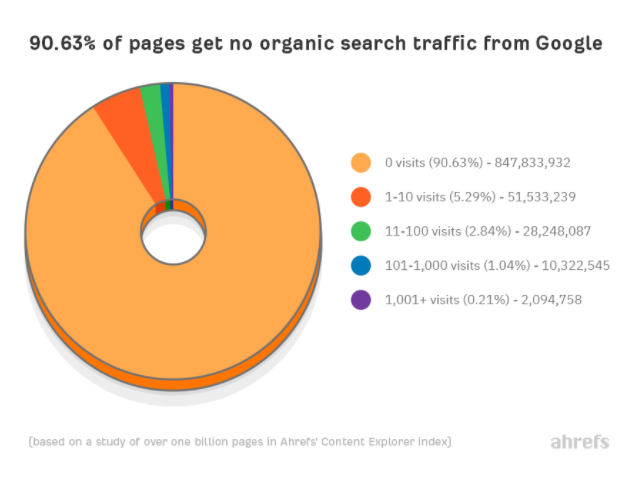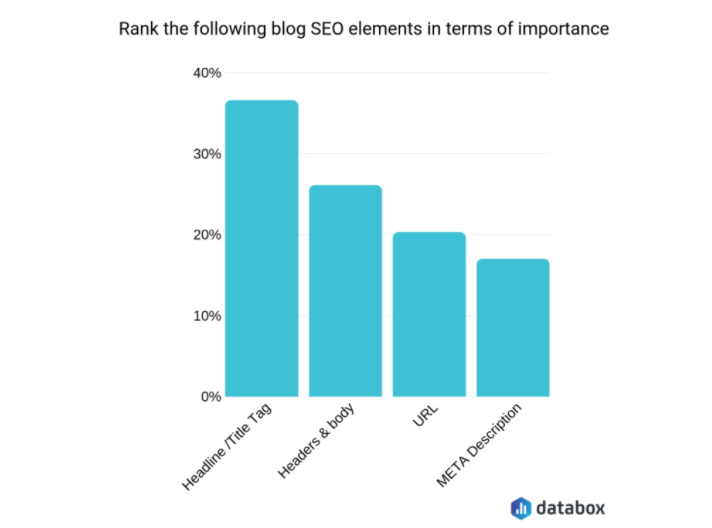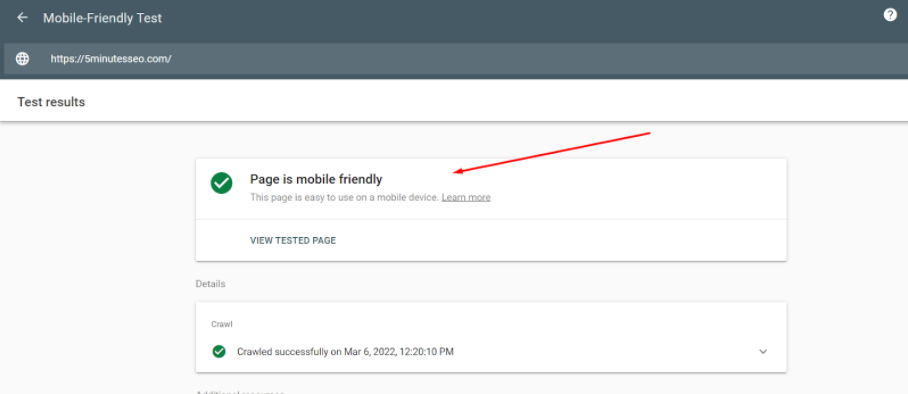Wondering what SEO audit is all about? Why should you audit your website? or How an SEO audit can improve your website’s performance in SERPs?
Great! Keeping reading…
With 90.63% of website pages receiving no organic search traffic from Google, you need to make sure customers find your website for relevant keywords and search queries.

For this reason, building a solid online website backed up by an effective SEO strategy that helps it rank higher on search engines is essential.
You tell me when you make a Google search, how often do you refer to the second-page search results? Almost never. This is because you get your expected answer in the top 10 results only. The same applies to your target customers as well. Only 0.78% of Google searchers click on results from the 2nd page.
That’s where the immense power of SEO comes into play. SEO helps your website rank higher in the search engine as well as drives massive organic traffic to it.
With SEO, more and more people can see your website, which means more online traffic and better chances for you to promote your product or services to a larger audience.
Now tell me, if your website is not optimized for search engines or generates desired outcomes, then isn’t there a serious problem?
Yes, it is. You’re missing out a lot on important organic traffic to your website.
That is why an SEO audit is important.
SEO audit enables you to review your existing SEO practices and plan further strategies to make them work.
It helps you to level up your SEO game and keep track of your website’s advantages and shortfalls to boost its visibility in the search engines.
Let’s know exactly what is SEO audit and why it is important:
What Is An SEO Audit, And Why Is It Important?
SEO audit is a process conducted to evaluate the various elements of a website in order to assess its capability to rank in the top SERPs.
SEO audit helps to:
- Review your brand’s SMART goals – specific, measurable, achievable, realistic, and timely goals.
- Assess the relevance and friendliness of your website in search engines.
- Find SEO and technical errors in your website.
- Evaluate the keywords you use and their relevance to your website.
- Assess your competitor’s sites and analyze their SEO and content strategy.
- Review the relevance and originality of your site content.
- Give valuable recommendations to improve your site’s overall performance.
You want to rank on the #1 position in Google, right? Then you need to know where your website is right now and where you want to take it further. This is where SEO audit helps. It is like a roadmap to guide you on how you will reach the top.
The main objective of an SEO audit is to identify all the possible SEO errors on your website so that you can fix them and start ranking higher.
It helps you keep track of what’s working on your website effectively, what needs to be improved, and which areas of your website need immediate attention.
There are two main ways to perform an SEO audit on your website:
1. You can manually review your website and list down the elements that need to be fixed in order to improve the ranking of your website in search engines. It’s a highly time-consuming, tedious process, though.
2. You can use various SEO auditing tools, namely, SEMrush, Screaming Frog, etc., where you just need to enter the URL of your website, and it will automatically run your site to present the results in a couple of minutes.
Why Does Your Website Need an SEO audit?
SEO audit is important to identify the strengths, weaknesses, and improvements in your site to make it a success in the eyes of search engines as well as readers accessing it. The key types of SEO audit include:
- Technical SEO Audit: This SEO audit helps you determine the technical issues of your website that make it difficult for the search engines to crawl your website and understand its content. The technical SEO Audit lists down all the technical problems on your site along with solutions so that you can fix them immediately.
- On-Page SEO Audit: This SEO audit helps you review those elements of your website that you can control and optimise and are also visible to your readers, such as content, meta description, title tags, headers, etc.
- Off-Page SEO Audit: This SEO audit deals with the elements of your website that are not in your control but impact your rankings significantly, like backlinks.
- Competitive Website Audit: With this SEO audit, you can identify what all your competitors are doing and compare your SEO practices with that of your competitors. This process will help you take note of things that you can do to make your website beat your competitors in order to rank better than them.
What Are The Key Benefits of SEO Audit For Your Website?
Here are the different benefits you will get by performing an SEO audit on your website regularly:
1. Helps In Identifying On-Page SEO Issues On Your Site
With the rollout of Google’s Penguin 4.0 Update, inserting too many keywords into your website is no longer useful and can only harm it. Nowadays, Google uses more than 200 ranking factors to determine the quality of your website and its ability to rank in SERPs.
Even though you think your SEO approach is going great, there is a high probability that you are still using certain outdated tactics that are either:
- Not support your ranking efforts.
- Impact your rankings in the wrong way.
Due to this, you need to review and understand the various issues that are damaging your website’s presence and find ways to change them. SEO Audit is the only way to accurately evaluate if you have all the necessary keywords, meta-descriptions, and other critical components in place to attract the attention of search engines.

Here are some common SEO issues that an SEO audit identifies:
Keyword research: You must know that 0.16% of the most popular keywords are responsible for 60.67% of all searches.
Therefore, before you dig deep into the keyword research, perform a site audit to know which keywords are currently ranking for your website and the search intent of users behind a specific search query.
After you get a list of keywords, you are ranking, search for your targeted keyword in Google and notice what results are coming up. Then optimize your content based on those keywords to rank better.
Internal Linking: Inter-linking the relevant pages of your website is important to help search engines understand what your content is all about, find new pages faster, and boost your SEO efforts.
SEO audit helps you to find if there are any:
- broken internal links,
- orphan pages,
- links to unnecessary pages,
- poor anchor text
- spammy use of internal links on your website.
Title and Meta tags: Title tag and meta description are the first things that a user notices when your website shows up in the Google SERPs.
So, if a search engine displays a wrong title or meta for a blog post, you will discover it in the SEO audit because the title or meta tag is entered wrong or implemented wrong. Also, it’s important to make both relevant to the content on your site.
Image SEO: Graphics or images are an essential part of any website content to make it more appealing and simpler for the visitors to read. However, if they raise the loading frequency of a website, they might backfire against your SEO goals.
Thus, with the help of an SEO audit, you must see:
- whether or not keywords are inserted in the image files name without any keyword stuffing,
- check if most photos or images have an SEO-friendly alt-text,
- confirm whether you have compressed the images to reduce their file size.
Seo-optimized content: Content is the king in SEO. An SEO audit evaluates the quality and effectiveness of your website content by:
- checking the length and freshness of the content,
- looking out for missing keywords,
- analyzing meta descriptions,
- H1s, H2s, and H3s heading tags and
- determining the type of content that your target readers will prefer.
2. Find And Resolve Technical Issues On Your Site
As Neil Patel says, “No website can stand without a strong backbone, and that backbone is technical SEO.”
Technical SEO is no more a choice but a necessity to create a crawlable, fast, and secure site.
A technical SEO audit can uncover and fix a variety of technical and structural issues in your website that is preventing it from performing better in search engines. A variety of technical problems you can get while auditing your website includes:
Site security: It is important to secure your website so that if anyone visits it and puts their information in it, it doesn’t get stolen. It has been an important ranking signal since 2014 because it builds trust among users as well as search engines that your website is safe to use. SEO audit helps you ensure that all pages on your website have HTTPS and are secured by an SSL certificate.
Duplicate versions of your site: You must ensure that Google indexes only one version of your site. A technical SEO audit helps in identifying if there are different versions of your site, including:
- http://www.domain.com
- http://domain.com
- https://www.domain.com
- https://domain.com
If you get any mixed versions of your site, it has potential issues that you need to fix immediately.
Redirects: SEO audit detects the redirects errors in your website that occur when a visitor tries to access your site and could not find the content they are looking for or taken to a 404/server error page. This implies that you have broken links on your site, and it is hampering the user experience, so you need to implement redirects for broken pages immediately.
URL Structure: URLs are important both for your users as well as search engines. By doing an SEO audit, you can find if your:
- URLs are too long,
- Hard to understand or
- Have lots of unnecessary characters.
Remember changing URLs can affect the SEO of your website, so you have to be careful while doing redirects the right way.
All of these issues that certainly have a negative influence on your SERP rankings, online traffic, lead conversions, purchases, etc., can easily be fixed with the help of an SEO audit.
3. Enhances Your Site’s Overall Performance
Google wants to provide its users with the greatest possible user experience across all devices. Performance is a critical factor that Google considers while ranking your website in the SERPs. This entails offering timely, high-quality content on your website that satisfies users’ search queries.
However, having the best content that satisfies the user’s intent on your website is not only sufficient. You must also make sure that in the eyes of Google, your website is safe and simple to use on both mobile and desktop devices.
Doing an SEO audit will help you locate any issues that might negatively impact your site’s overall performance. Some of the common issues an SEO audit detects are:
Page Speed: Nobody wishes to click or visit a website that takes a long time to load. Do you know that 40% of consumers will wait no more than three seconds before abandoning a website? The longer a website takes to load, the higher the bounce rate will be.
You can check your page speed with an SEO audit and know how well your pages are loading on desktop and mobile screens, along with suggestions to improve it. Your site might be loading slowly due to:
- large images,
- server response time,
- unnecessary HTML,
- CSS or JS code.
SEO audit helps you understand all these issues and take necessary actions to fix them.
Sitemaps: You should have an XML sitemap for your website in place. XML sitemap consists of links to all pages of your website that makes it easier for search engines to crawl them faster.
With the help of an SEO audit, you can find the following issues in your sitemap and update it again:
- Sitemap not found
- The sitemap file is too large
- Incorrect URLs in the sitemap
- HTTPS URL in an HTTP sitemap
Mobile responsiveness: Knowing that 52.2% of the total website traffic generates from mobile phones, you just can’t ignore the importance of optimizing your content for mobile users. Make sure your site doesn’t have any mobile loading issues.
An SEO audit will help you discover whether your website is mobile-friendly or not.

Some user experience concerns will be simple to resolve right away. Some aspects of your website can take a little longer to complete. Regular audits will keep you informed of any issues as quickly as feasible.
4. Helps In Boosting Your Marketing Efforts
With the ever-increasing power of SEO in the digital world, 61% of B2B marketers believe that SEO and organic traffic generate more leads than any other marketing initiative.
Doing a thorough SEO audit helps you curate a solid and effective marketing strategy. And because the user experience is one of the main elements of an online website, an SEO audit will reflect the different areas where your site might experience any downtime due to poor user experience, such as:
Structured data markup: Information that appears straight away on the search results, for instance, reviews, FAQs, images, or recipes are known as structured data. Structured data is another way to tell search engines the context and meaning of your content and why it is worth ranking.
For instance, Google can see a string of numbers, and instead of identifying it as a phone number, structured data helps Google understand that it is your company’s phone number explicitly.
Google itself says:
Google Search works hard to understand the content of a page. You can help us by providing explicit clues about the meaning of a page to Google by including structured data on the page. Structured data is a standardized format for providing information about a page and classifying the page content.
With SEO audit, you can know:
- Whether you have structured data enabled for:
- Your main homepage
- Your articles
- Your products listed
- Your breadcrumb menus
- If any of your structured data is broken.
- Is there anything else you can do with your structured data?
Customized 404 pages: The SEO audit will check if your website has any 404 pages that are bad for user experience as well as for SEO. You can create a custom 404 page to boost your website’s user experience by letting users know that a specific page of your website is broken.
Working on these issues will undoubtedly boost user experience on your site and help it with organic marketing.
However, it is also essential to concentrate on other SEO issues that are obstructing your site. The audit allows you to evaluate the current performance of your site to monitor fundamental factors like bounce rate, conversions, competitor’s performance, content-related issues, keyword density, and page views. In simple words, an SEO audit helps in doing the SWOT analysis of your website by analyzing its strengths, weaknesses, opportunities, and threats.
These factors will only affect the overall functionality of your site, regardless of other enhancements you make. Similarly, if your bounce rates are high, your pages are not user-friendly, or your ads or CTAs are not effective, you can’t persuade users to engage with your site or convert them into potential customers.
5. Keep Track Of Your Keyword Rankings
Keywords are a fundamental element of SEO. Every second on Google, 81988 searches happen. Even now, many marketers still fail to comprehend how they rank across the various keywords that they target.
You could have produced the best content on your website, but it will be difficult for your customers and search engines to find it if it isn’t properly optimized for the right keywords. For that reason, it is important to keep track of your keyword rankings.
An SEO audit provides detailed insight into your organic search result visibility and trends of your keyword ranking position. With that, you can track every possible keyword that is driving your customers to your site.
This will assist you in understanding the search phrases and variants that your target consumer uses, which you use to further develop and optimize your content and SEO plan.
However, if any of your keywords or pages are not ranking, it implies that your pages lack the content your target audience is looking for. It also gives you the opportunity to update your content with relevant, useful keywords based on your user’s search queries.
6. Helps In Improving Your Site Structure
Other than just having fast-loading pages with a simple navigation bar, your website structure should also have internal linkages between various content pages on your site that highlight your brand’s authority and knowledge. These are exactly what Google looks for when it crawls your website to rank your site in the top SERPs.
An SEO audit will not only check your website’s external links to other reputable sites but also shows you how your site’s internal pages are linked together.
Suppose, if you have a content marketing company, and you have some blogs written on the following topics:
- Tips & Tricks on content marketing
- Guides to Content Marketing Software
- Topics for Creating an Effective Blog Content
Then you can interlink the blogs with one another or with the main homepage using relevant anchor text so that customers can visit more pages of your website. By doing stuff like this, your company makes things simpler for Google to understand how your pages are related and index your pages faster.
Not only this, but an SEO audit also helps you find out:
- If the content of your website is grouped into relevant categories or pages.
- Whether or not you have correctly written contact, privacy policy, disclaimer, and about us pages on your website.
7. Provide Data Supported Progress Report
As you continue to solve all of your website’s errors with an SEO audit, you should also measure the performance of your site after all those improvements on a regular basis.
An SEO audit report allows you to monitor how things were on your site before you implemented all of the improvements and what significant changes have now been seen in your website’s performance. For instance, the report can contain:
Organic traffic: Traffic is one of the most important things in SEO. You can take note of your website traffic before and after the audit:
- How much overall traffic your website is getting
- How many sales have you generated if you sell any product or service? Or,
- Which pages of your website are receiving maximum traffic
Rankings: Make a list of keywords that you are targeting on your website and then evaluate their present ranking position, search volume, monthly ranking trend, and so on.
Furthermore, any effective SEO plan can only be implemented after having a clear idea of what is working fine and what needs to be changed on your website. A comprehensive SEO audit of your website helps you create a data-driven strategic plan and a strong foundation to measure your future outcomes.
8. Helps In Analysing Your Competitor’s Strategy
Do you want to know what keywords your competitor is using or their backlink strategy for which they are continuously ranking in the number #1 position?
Establishing an online presence cannot be done without considering the competitors. It’s critical to recognize your competitors and determine what they are up to.
A competent SEO audit will reveal the competitors and their strategies. You can evaluate:
- What keywords are they using? By evaluating the keywords your competitors are using, you can find opportunities for the keywords they are missing out on and start targeting those keywords.
- What backlinks are they creating?: Backlinks are among the top three Google ranking factors. Accessing their backlinks profile will aid you in evaluating where most of their links are coming from, and you can further plan your link building or guest posting strategy in such a way that you can beat theirs easily.
- What’s their content and SEO strategy? If you are not getting traffic, your competitors are definitely getting it. So, you can analyze the best-performing content that is helping them rank higher in the search engine. You can also create a similar type of content or even better than them to provide a better content experience to your visitors.
- How is the Technical SEO on their site? Analyzing the technical details of your site compared to your competitors helps you ensure if you’re missing any technical SEO gaps that are affecting your rankings largely. Key technical SEO elements that you would want to analyze for your competitors include:
- Internal linking
- Website structure
- Mobile-friendliness
- SSL certifications
- Page Speed
All of these will certainly assist you in identifying possibilities to outperform them in search results and increase traffic to your website.
9. Helps In Formulating Your Future SEO Plans
SEO audit is not a one-time task. It’s not like you have run an SEO audit for your website, implemented the changes, and you’re done. It’s extremely important to repeat the process not only to keep track of your site’s performance in search engines but also to create a more solid SEO strategy for the steps you want to take next.
In simple words, an SEO audit will guarantee that you are not making adjustments to your page solely to keep up with industry trends or to keep up with what your competitors are doing. With an audit, you create a tailored success content strategy for your website that helps it rank better.
Tools You Can Use For Auditing A Website
You can use the following tools to audit your website:
Semrush is a well-known SEO audit tool suitable for both small and big websites to run a check on critical SEO issues on your website and generate an easy-to-implement SEO report.
According to their severity, all issues are categorized into three categories:
- Notices,
- Errors, and
- Warnings.
The tool looks for over 130 various types of technical and SEO issues on your websites, such as broken links, crawling issues, pages with duplicate title tags, etc.
The Screaming Frog SEO Spider is an effective and robust site crawler that can rapidly crawl both small and large websites to extract onsite data and audit them for various SEO issues, helping SEOs make logical selections. You can crawl up to 500 URLs in Screaming Frog.
If you want to audit your complete site at once, then Screaming Frog is the best choice. It also helps in permitting you to analyze the results in real-time and helps you boost on-page SEO.
The tool reports more than 30 essential parameters, including URLs, page titles, meta descriptions, outbound links, anchor text, response time, and page headings to a spreadsheet, which can be used as a foundation for SEO suggestions.
Ahrefs Webmaster Tools is a free, helpful SEO tool launched by Ahrefs that scans your website for more than 100 on-page and off-page SEO issues that might be harming your site’s performance in search engines. Additionally, the tool also gives suggestions to improve them.
To get started, all you have to do is click on the ‘site audit,’ and it will take you to a dashboard where you can see all the SEO issues on your website.
After running your website audit in the Ahrefs Webmasters tool, it also suggests areas where you can improve your internal linking, which would eventually boost your rankings in search engines.
Other than that, the tool enables you to check your organic keyword rankings and the sites that are linking to you.
Let’s Sum It Up, Folks!
SEO Audit is important to check the overall health of your website and find out any issues that are preventing it from ranking in the search engines. Thus, conduct regular SEO audits on your website once every month to get detailed feedback on your content, internal links, backlinks, keywords, competitors, etc.
An SEO audit will help you get aware of all the issues that are negatively impacting your website performance so that you can tackle them before they can do more damage to your site. When you have a clear insight about your website, you can drive more organic traffic to it and increase its visibility in the search engines.
So, audit your website today and make your way straight to the top search engine result pages!







